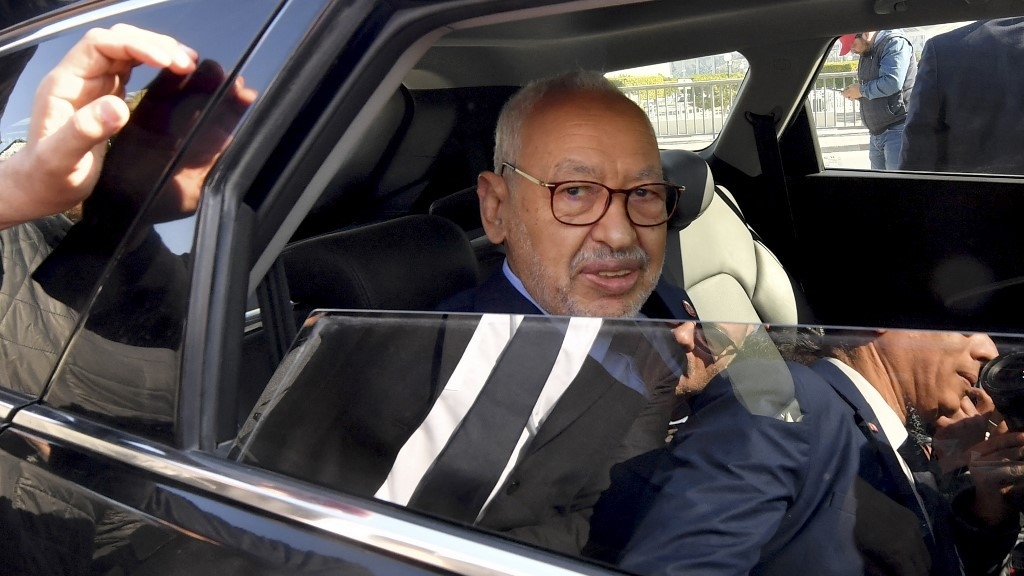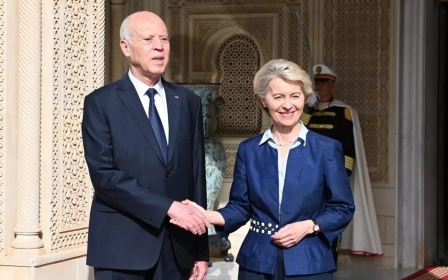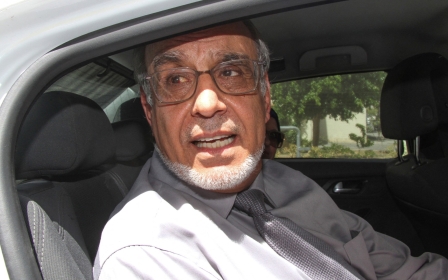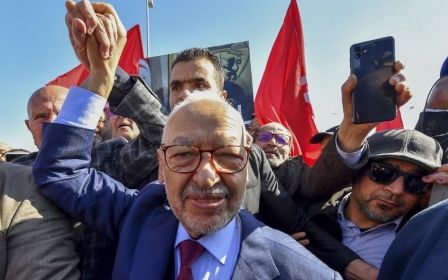Tunisia: Opposition leader Rached Ghannouchi begins hunger strike

Rached Ghannouchi, the leader of Tunisia’s main opposition party, announced that he will begin a hunger strike on Friday.
The Ennahda party leader, the most prominent critic of Tunisian President Kais Saied, made the announcement through adviser Riad al-Shuaibi on Thursday, according to local media.
In a Facebook post, Ennahda adviser al-Shuaibi stated that the hunger strike would be “ongoing” until “all grievances and restrictions imposed on him and other political detainees are lifted”.
Ennahda, a self-defined Muslim-democratic movement and one of the most prominent parties in Tunisia, confirmed the hunger strike in an official statement on Friday.
Ghannouchi joins Jawher Ben Mbarek, another prominent opposition figure and fierce critic of Saied, on the hunger strike.
New MEE newsletter: Jerusalem Dispatch
Sign up to get the latest insights and analysis on Israel-Palestine, alongside Turkey Unpacked and other MEE newsletters
The Ennahda leader was arrested on 17 April on the orders of a Tunisian judge and was under investigation by authorities for money laundering and incitement to violence, charges he denies and that his supporters claim are politically motivated.
On 15 May, Ghannouchi, who refused to appear before the judiciary because he believed the charges were fabricated for political reasons, was sentenced in absentia to a year in prison. The sentence marked the most high-profile escalation of an authoritarian crackdown that has been ongoing since Saied took office.
“Kais Saied is making a mockery of the judiciary, using it as a tool for political revenge and persecution,” Ghannouchi's daughter tweeted at the time.
Calls for release
Last month, hundreds of influential figures from across the Arab and Muslim world demanded the release of Ghannouchi and other political detainees in Tunisia, 100 days on from his arrest.
According to the signatories of the open letter to Tunisian authorities, Ghannouchi’s arrest is part of a “widespread crackdown” on dissent that has intensified since February 2023, as more than a dozen opposition figures have been arrested, including judges, politicians, activists and businessmen.
Ghannouchi served as the speaker of parliament but Saied dissolved parliament. He led a centrist party of what he called "Muslim democrats", who aimed to find common ground with Tunisia's secular factions in the administration.
The 82-year-old political leader was handed a prison sentence and a fine in connection with public remarks he made at a funeral last year when he praised the deceased, an Ennahda member, as a “courageous man” who did not fear “a ruler or tyrant”.
Kais Saied, a former constitutional law professor, was elected president in 2019, vowing to clean up corruption and cut through political chaos.
In 2021, he closed down parliament and began consolidating power. He has arrested journalists, activists and political opponents, in what Amnesty International has decried as “a politically motivated witch hunt”.
This article is available in French on the Middle East Eye French edition.
Middle East Eye delivers independent and unrivalled coverage and analysis of the Middle East, North Africa and beyond. To learn more about republishing this content and the associated fees, please fill out this form. More about MEE can be found here.





